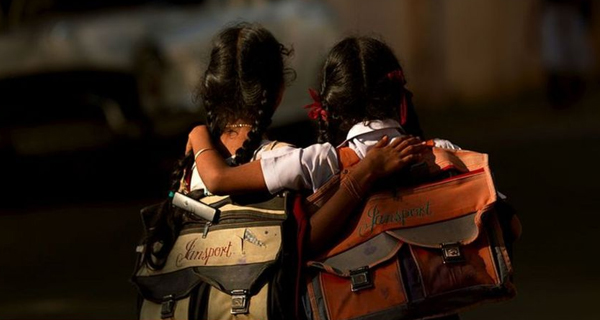“I was raped by my brother-in-law at the age of fourteen. The baby was born at the age of 14. Then I married someone else. I liked that marriage because I wanted to name the baby’s birth. But my son and I have not been free since the day we got married.” I will say her name is Ramani. I met her in Moneragala, where most of the people live in poverty. She was abused inside her family. Moneragala is an area rich in Chena cultivation. On the other hand, with the ruins of the plantation economy, the plantation economy is still struggling to breathe. Keep this economic picture in mind and read this story.
‘I went to school in Pottuvila. Then he goes to work. It was while we were going that we became friends. I was 15 when we got married. This child was born in age 16. I do not have a father. Mother is in the country. I was at my brother’s house. We fell in love for six months and got married. Now he’s not looking after us. I have no intention of getting married again. The child needs to be adopted. Garment wants to go and adopt a child ’.
This is Ramani’s story as well as another story. This was also heard in Moneragala. The reason for both of these stories is the child marriage culture. Child marriages are still prevalent in Uva, North Central and North Eastern Provinces. This is just another aspect of child abuse. There are abused and abused children all over Sri Lanka. Pregnancy at an early age is just one form of this abuse.
What exactly is child abuse? In 1999, the World Health Organization (WHO) provided a comprehensive definition of this.
All forms of physical or mental abuse of the child, such as sexual abuse, neglect or neglect, or commercial or otherwise exploitation that harms the dignity of the child or the child’s health, existence, development or responsibility, trust or authority; Acting as it could be as child abuse.
Priyantha Bandara, a lecturer at the Pulathisipura National College of Education has this to say.
“Millions of children are abused worldwide each year. Isn’t that so in Sri Lanka? The same is true in Sri Lanka. If we look at world trends and the situation in Sri Lanka, we see a rapidly growing trend. It has been revealed that the number of complaints received by the National Child Insurance Authority during the period 2011-2020 was 89409. In addition, the agency has officially declared the number of unresolved complaints as 40668 by January 31, 2021. ”
Dr. Thus Wickramanayake, President of the Stop child cruelty Foundation, has stated like this.
‘We talk a lot about sexual abuse these days. We see these in the newspapers. But in fact the majority of the 4 types of child abuse in Sri Lanka and globally (physical abuse, sexual abuse, mental abuse and neglect) are physical abuse such as assault. But we often justify them and talk more about this sexual abuse. So if you want to protect your child from an early age, teach them the two words no. Also, teach them to scream and run away when they feel scared, or to ask for help from an adult who is close to them. Because of this you trust the child. You stay close to the baby ’
